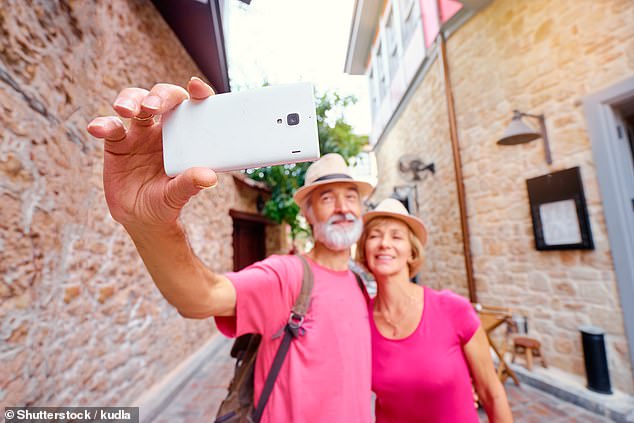University researchers have found travelling to another country has a major surprise benefit
Many Australians travel overseas for cosmetic treatments and enhancements, but new research suggests half of the procedures could be done just by hopping on a plane.
Scientists from Edith Cowan University in Perth have discovered that travelling not only has mental and physical benefits, it can also make people look younger.
“Aging… You can’t stop it, but you can slow it down,” said researcher Fangli Hu.
The research shows that exposure to new cultures, languages, environments and leisure activities can stimulate stress responses and increase metabolism, which stimulates the body’s self-organizing capacity.
It may also trigger an adaptive immune system response.
“Simply put, the self-defense system becomes more resilient,” Ms. Hu explains.
‘Hormones that promote tissue repair and regeneration can be released and promote the functioning of the self-healing system.’
Exercise can improve blood circulation, speed up the transport of nutrients and promote the removal of waste products, allowing the body to heal itself. Moderate exercise is good for bones, muscles and joints, and also supports the body’s anti-wear system.
Scientists from Edith Cowan University in Perth have discovered that, in addition to the mental and physical benefits associated with travel, it can make people look younger by slowing the ageing process.
Australians are well aware that time off is good for mental health. More and more companies are including extra days off in their employment contracts and a four-day working week is a popular topic.
But its anti-aging benefits are revealed in a world-first study that applies the theory of entropy – a trend leading to death – to tourism.
“Tourism is part of a healthy lifestyle that has the potential to contribute to physical and mental health and promote healthy ageing,” said Ms Hu.
‘When you travel, you can immerse yourself in a new environment, especially therapeutic landscapes like forests and beaches. They can also help reduce stress and improve people’s mental well-being.’
Because people are away from their daily routine, they are more active, adventurous and interactive.
“Travel can promote physical activity, such as walking, hiking, cycling – many activities that can improve cardiovascular health, metabolism, muscle tone and many other aspects of body function,” Ms. Hu said.

The anti-aging benefits of travel are revealed in a world-first study led by researcher Fangli Hu
‘(It) can force us to interact – interacting with other tourists, interacting with locals, or even animals can improve their mood. It can reduce feelings of loneliness and improve cognitive function. Traveling can even improve healthy eating – trying fresh and local food.’
Of course, not everything about traveling is fun or relaxing. Who hasn’t missed a connection, eaten something that made them sick, or waited on the baggage carousel for a missing suitcase?
“Only positive tourism experiences can have a positive effect on health,” said Ms Hu.
‘Negative factors can lead to health problems.’
But that doesn’t mean there’s a one-size-fits-all approach to a successful holiday.
Different people have different expectations and needs, so they should consider their financial, health and access requirements before booking a trip.
Ms. Hu said there is no reason to spend a lot of money.
“Even weekend trips can have a potential health benefit. It depends on people’s situation.”
